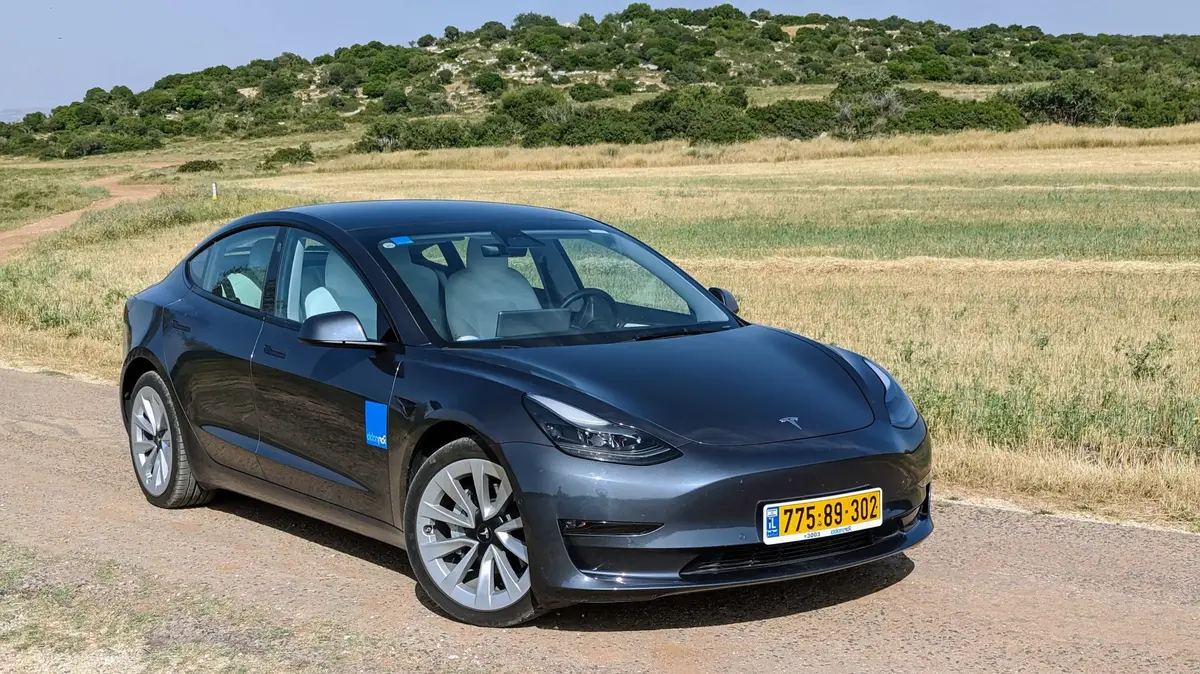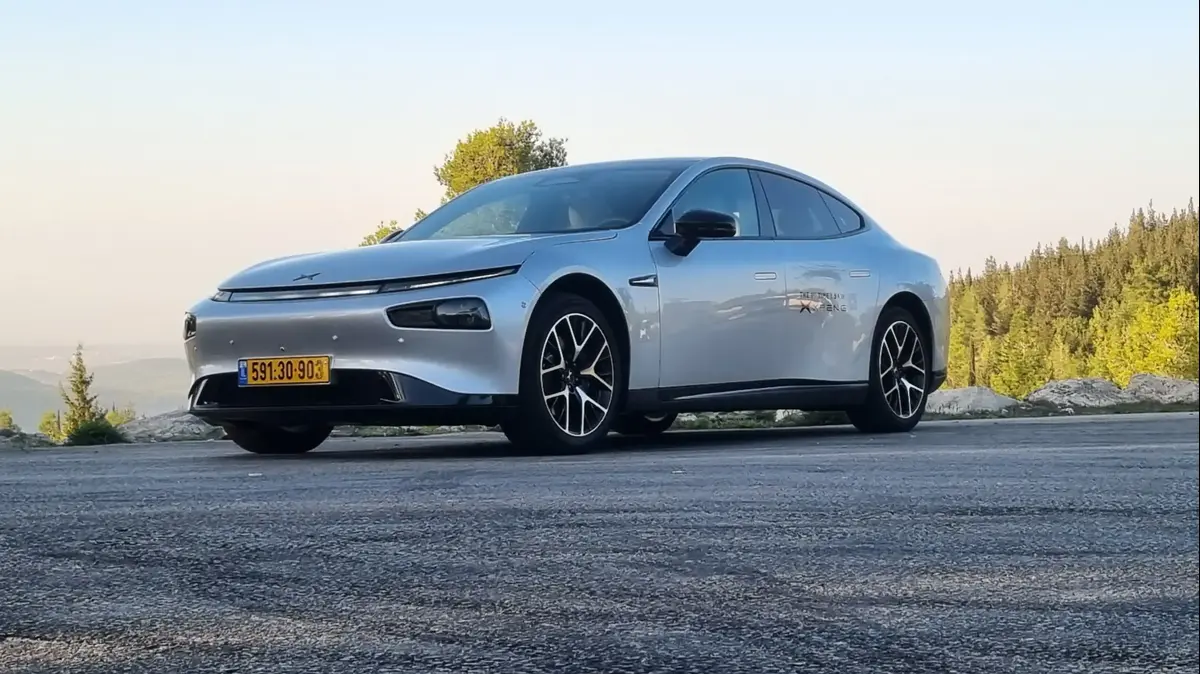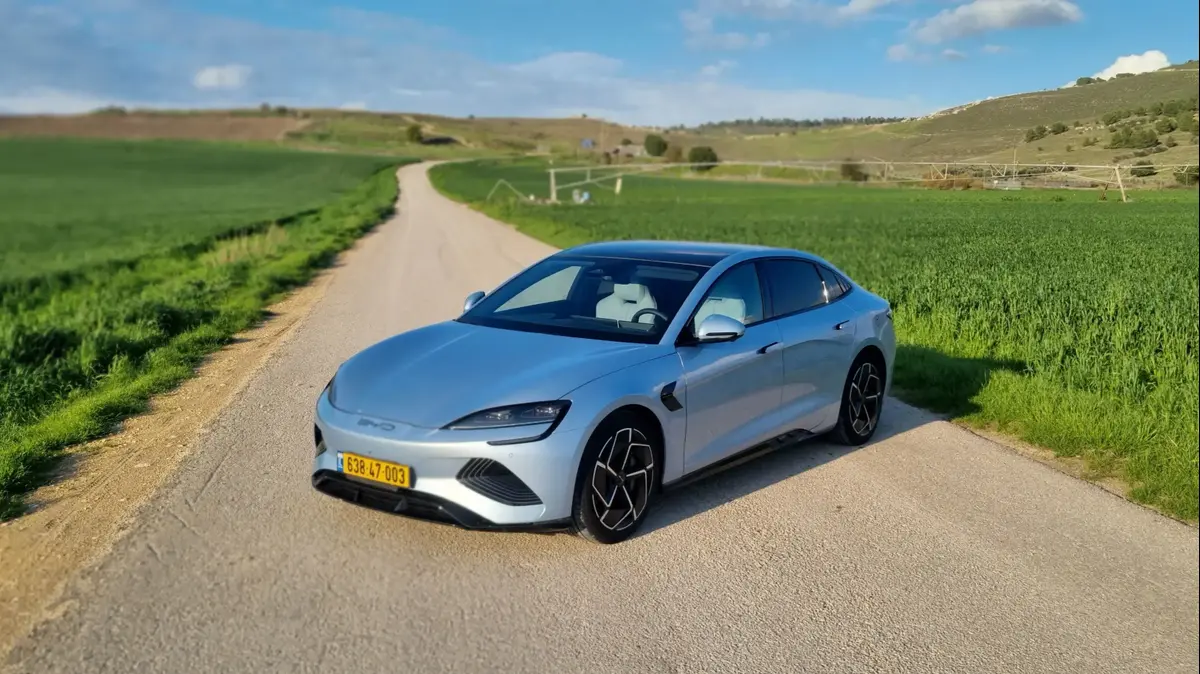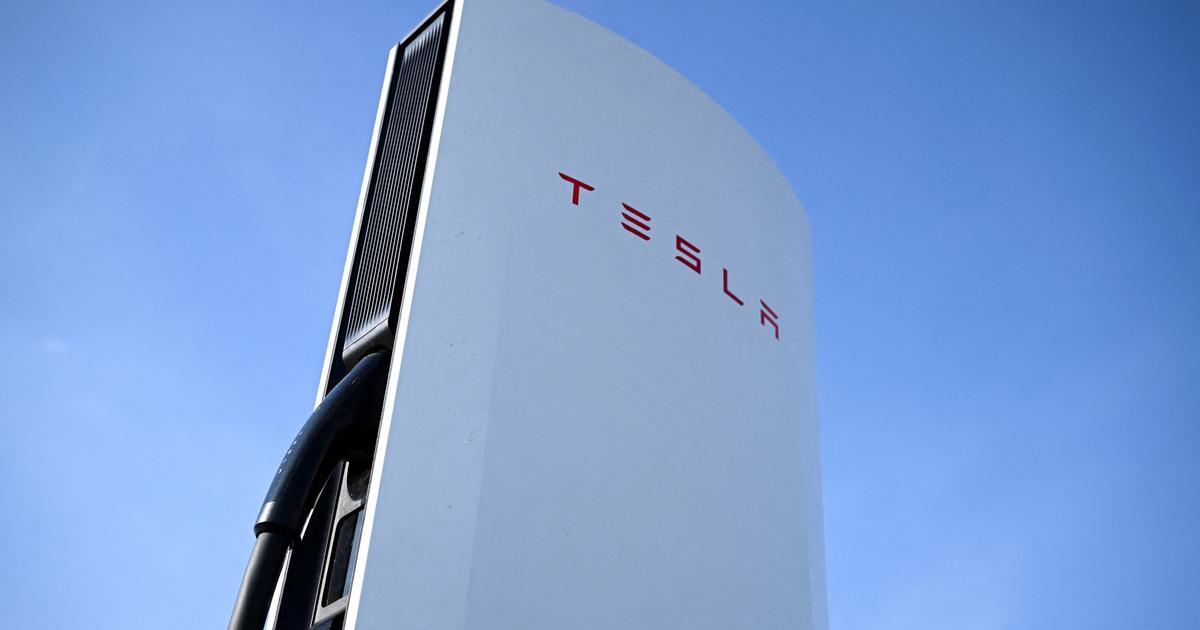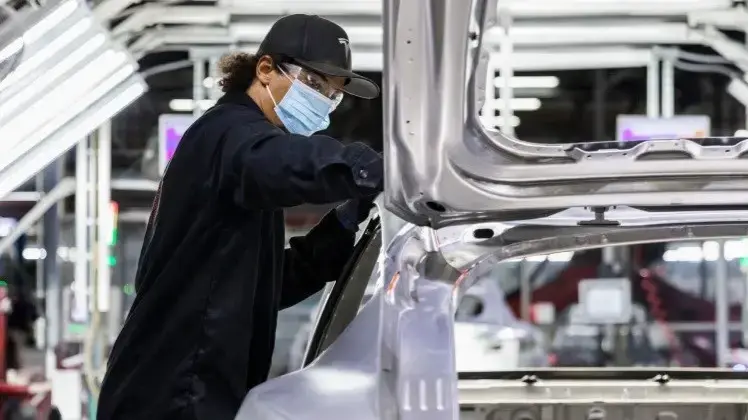Transportation Minister Miri Regev and senior Dan executives inaugurate a charging parking lot for electric buses. It is not certain that there will always be electricity in the outlet (Photo: Roy Castro)
"I went through Tesla's charging stations in the south with what little battery I had left, and they all didn't work," raged the Model 3 owner who was stuck for hours on Friday afternoon. Elon Musk may be able to reinvent the electric vehicle, take us cheaply to space on the way to Mars, but even he cannot cope with the ills of Israel's electric grid.
Friday's big power outage wasn't just a home supply problem. In the days of accelerated transition to electric transportation, it was a flashing red light before the accelerated transfer of transportation in Israel to the use of electricity. By car, buses and trains.
A few hours before the collapse, the Automobile Importers Association released new vehicle deliveries figures for May, and for the first five months of 2024. About 24,3 electric cars have taken to our roads, the best-selling car in Israel is electric, the BYD Atto 16, and the market share of electric cars in the new car market remains stable at <>%, higher than the European average.
Even so, purchasing an electric vehicle requires dealing daily with range anxiety, planning charging on long journeys, versus fast charging stations that are not always functioning and sometimes have queues. Now it turns out that it is not at all certain that electricity will flow through the proper stations, and even at home stations.
Why buy an electric vehicle if it is possible that electricity will not flow through the outlet? In the meantime, we will remain in a hybrid or plug-in (Photo: Keinan Cohen)
The Ministry of Transport has set 2026 as the year in which the purchase of new urban diesel buses will stop. In the same year, 60% of city buses will be emissions-free from exhaust, and with a planned life span of ten years, by 2035 non-electric buses will not travel in Israel's cities – only intercity buses, whose range is not enough for really long journeys, will still be fueled by diesel. There are already more than 300 such buses operating in Israel, and last month the National Infrastructure Committee approved the plan to electrify about 300 bus terminals throughout the country, which will be submitted to the government.
Imagine a Sunday like this in 2035, when a combination of a dust storm and a malfunction at several power plants and power storage facilities means that when drivers arrive at the parking lots, they find the bus fleet with empty batteries. At the same time, queues for nervous passengers will lengthen at Israel Railways stations, which is supposed to finish electrifying its main lines by the end of 2025. The light rail in Jerusalem, Gush Dan, Haifa and Nazareth and perhaps Be'er Sheva will also remain on their depots. At least the metro will not sit then, because in advance as things are now it will already be ready.
The transition of transportation in Israel to electric transportation seems logical and coordinated with what is happening in the world, and with the need to reduce our emissions and clean the air in cities. But what's the point of the Ministry of Transport rushing forward, when the Ministry of Energy is unable to back up the electric revolution and ensure that there will be electricity in the charging outlets?
More in Walla!
The Complete Guide: Everything You Need to Know Before and After Catheterization
In collaboration with Shahal
The country's first hydrogen filling station. A great alternative to electric charging, it's a shame that there is only one at the moment (Photo: Idan Sabah)
The collapse also highlighted the dilemma that every car buyer has today: electric, yes or no. After all, as the gaps in our electricity grid and forecasts of increased frequency of phenomena such as sandstorms due to the climate crisis show, Thursday's event will not be isolated.
So if you can, back up your electric vehicle with a home solar charging system. And maybe it's time not to go all the way with the revolution, and make do with a plug-in car, which can travel dozens of kilometers and sometimes even more than 100 kilometers on electricity, but being a hybrid and equipped with a gasoline or diesel engine at the same time as electricity, it will never get stuck even when the electricity runs out. Only will be less clean and economical. And the safest is a regular hybrid car, which never charges sediment, only uses wasted energy while driving, but also does not solve the problem of air pollution.
If the state does not now launch an accelerated move to build power plants, storage facilities and accelerate the use of renewable energies, there is no reason to buy a 100% electric vehicle now and risk that our movement will be halted, even if in the meantime we pollute a little more.
- Car
- Car News
Tags
- Electric vehicle

